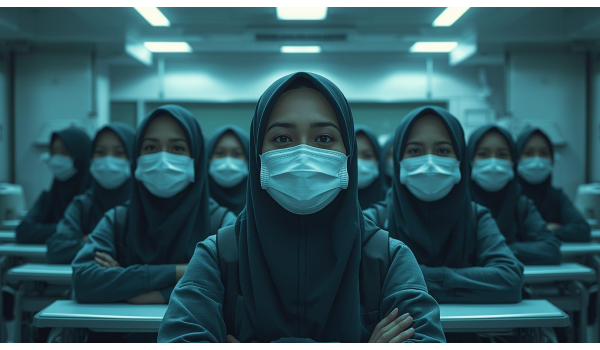
A university student’s life in the past was defined by long hours in the library, piles of handwritten notes, and meticulous citation work. Today, students can simply type a question into ChatGPT and a seemingly perfect assignment is generated in a matter of minutes. It’s fast, effortless, and looks flawless. But this presents a crucial question: are we raising critical thinkers, or just ‘copy-paste graduates’?
The Temptation of a Shortcut
AI tools like ChatGPT offer a tempting shortcut. They can write essays, analyze topics, and even formulate arguments in a polished academic style. However, when students hand over their work entirely to a machine, they bypass the most vital part of education: The process of thinking, evaluating information, and developing their own original ideas.
Without this process, we risk producing graduates who have a diploma on paper but lack the critical skills needed in the real world. They may know what to say, but they don’t understand the “why” behind it. This is a genuine threat to the credibility of our higher education system.
The Academic Response
In recognition of this challenge, many lecturers are changing their approach. Assignments are no longer limited to written essays that are easily produced by AI. Instead, the focus has shifted towards oral presentations, in-class discussions, and hands-on field projects.
At private universities like INTI International University, for instance, educators are pushing for assignments that demand practical experience. These are tasks that require deep understanding and engagement with the real world something that ChatGPT is simply unable to replicate. This effort is key to ensuring students truly grasp knowledge, rather than just regurgitating AI-generated output.
An Ally, Not a Crutch
AI is not an enemy to be feared. When used wisely, it can be a valuable tool for students—helping them brainstorm ideas, understand complex concepts, and structure their writing. Yet, the final output must still be a product of human thought.
The graduates of the future won’t be judged on their ability to mimic AI, but on their capacity for critical thinking, problem-solving, and adaptability in the workplace.
Forging True Intellectuals
The rise of ChatGPT is a test for the true value of higher education. Whether we end up with a generation of “AI clones” or a generation of true intellectuals depends on how students use this technology and how educators guide them.
Because true knowledge is not gained by pressing a “generate” button. It is born from the process of thinking, striving, and daring to challenge oneself that is the very essence that distinguishes a genuine student from a machine.
This is the author’s personal view and does not necessarily represent the views or official position of RTM.

Dr. Saheera Binti Sardar Mohamed
Senior Lecturer
Faculty of Business & Communication
Inti International University
e-mail: saheera.sardar@newinti.edu.my



